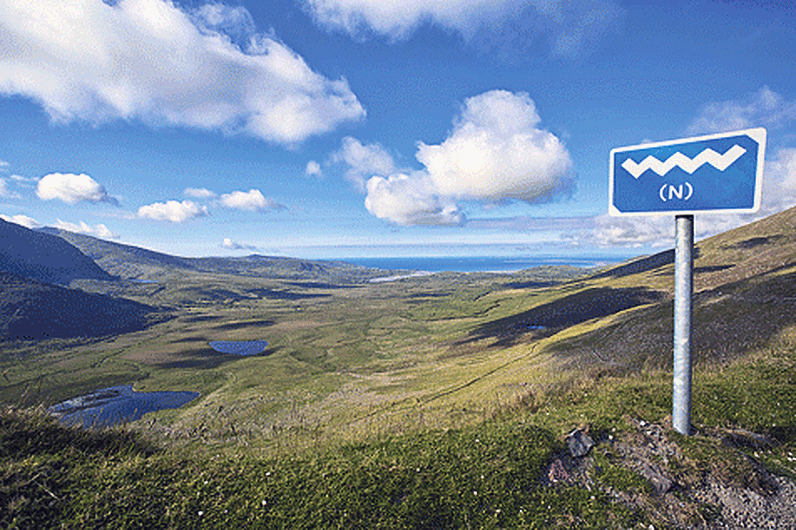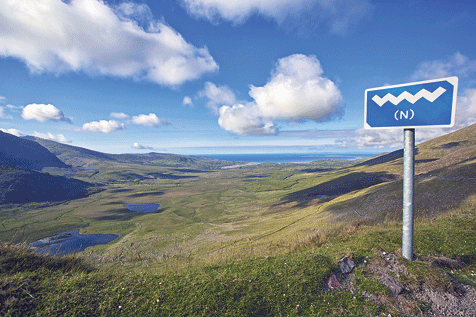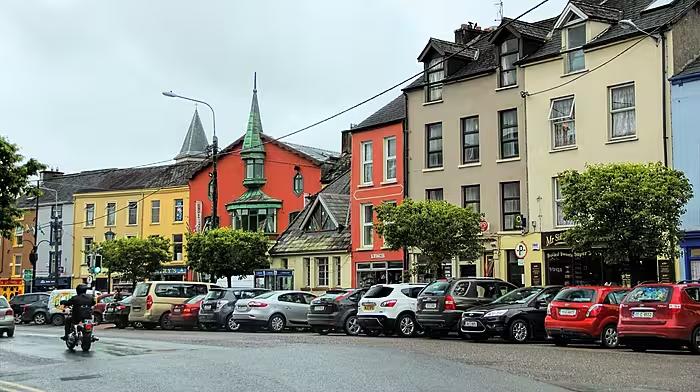Novelist Anne Plumptre from Norwich (55) set off from Cork with her male servant on 6th September 1815.
NOVELIST Anne Plumptre from Norwich (55) set off from Cork with her male servant on 6th September 1815, writes Robert Hume.
They were hoping to reach Skibbereen in their open carriage by nightfall. However, by the time they reached Bandon, ‘a large town, but scarcely containing one tolerable house’, the driver – who had something witty to say to every passer-by – was already having problems with the horse, ‘the most sluggish animal she had ever seen’.
At Clonakilty, ‘altogether a dirty poor-looking place’, Plumptre got caught up in a funeral procession when the horse was resting and taking refreshment.
As the lodging houses looked so uncomfortable here, they decided to ride a further six miles to Rosscarbery. This stretch of road was new, and the approach to the village extremely pretty, offering views of numerous bays; but its best inn turned out to be ‘a miserable-looking place, looking many degrees worse than those I had despised at Clonakilty.’
The landlord felt sorry for her, and turfed out another occupant to give her his best room with nice sheets, perfectly clean and white. Contented, Plumptre ordered her usual supper of tea, eggs, and bread and butter.
Next morning she spent several hours on the beach, exploring the deep caves beneath the overhanging cliffs, hearing the roar of the waves.
As they crawled along another newly made road, the beautiful ivy-covered bridge at Glandore Bay, and a pretty group of small lakes with rocks, caused her to gasp with delight.
Eventually they arrived in Skibbereen, its many new houses suggesting the town was becoming increasingly prosperous; but she also noted whole streets consisting entirely of the ‘wretched mud cabins of the peasants’.
The sixteen-mile stretch to Bantry, which began as a rocky mountainous road, took six hours. At times she thought she would never get there. The horse was not used to travelling faster than walking pace, or completing more than twelve miles a day. Made worse by ‘barren and uninteresting scenery’, her journey was fast becoming ‘a new addition to the miseries of human life’.
Fortunately, the sight of pretty Bantry Bay, surrounded by wild mountain scenery and towering rocks, not merely lifted her spiriits – it left her spellbound. Nothing, she said, could better it in ‘grandeur and sublimity’. And in Bantry town there was a very comfortable inn, and a change of horse.
Next morning, stopping for a while just outside Bantry, she was able to collect rock specimens. They were told it would be impossible to get to Killarney in one day, as she had hoped, and that they had better settle for Kenmare.
At Glengarriff some gentlemen recommended a ‘clearly marked track’ along the valley and over the mountains. Not only was it supposed to be shorter, but would avoid a hazardous spot called ‘The Priest’s Leap’.
But as they advanced slowly through the rocks, the road grew worse. When they got to one particularly steep place, a villager and a gang of boys had to help push the carriage.
Plumptre and the driver got down and led the horse. The further they got, the worse the road became – and the steepest climb was still to come. Every ten or twenty yards along this truly Wild Atlantic Way they needed another push. ‘We had much better have gone by The Priest’s Leap,’ said the driver.
Eventually they reached the summit, only to face a steep descent before, finally, coming across a smooth, level road. Continuing through a wild and hilly region, they joined the direct road from Cork and crossed a picturesque two-arched bridge, before entering Kenmare, a small town with good-looking houses and a new inn.
Next day they left the coastal route and proceeded to Killarney. To avoid crossing the mountains again, they took a good but extremely round about road.
Local people had warned her not to expect fine weather, and sure enough, as they approached the town late in the afternoon it had begun to rain.
Weary from the previous day’s ordeal, their new horse could hardly put one foot in front of another. Anne Plumptre could not wait to view the wonderful lakes she had read about. Jumping down from the carriage, she completed the last two miles into Killarney on foot.
Extracted from Anne Plumptre’s Narrative of a Residence in Ireland (1814, 1815)








